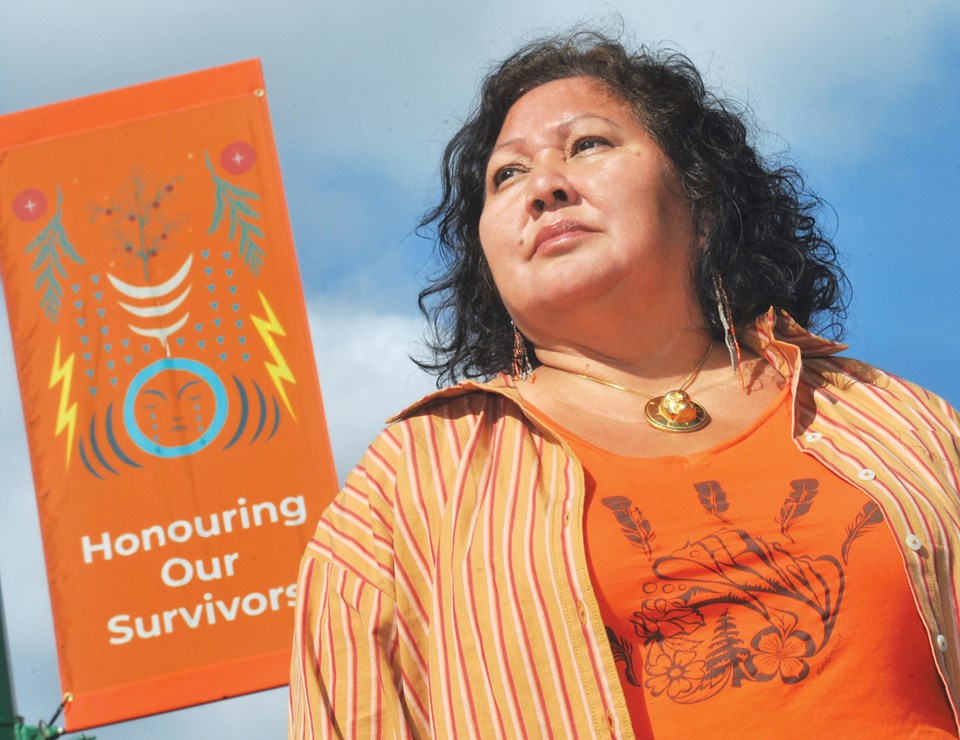The səlilwətaɬ (Tsleil-Waututh Nation) is honouring residential school survivors via the installation of ten, orange light pole banners, ahead of the National Day for Truth and Reconciliation this Sept. 30.
The banners are posted at various locations within the Tsleil-Waututh Nation community, with five raised along reserve land on Dollarton Highway, including one in front of the Nation's cemetery.
The design is the logo from a program the Nation’s Truth and Reconciliation committee working on, overseeing the ground penetration work at North Vancouver's St. Paul’s Residential School and encouraging survivors to tell their story, said Tsleil-Waututh Nation councillor Charlene Aleck.
Combining a crying moon face, rain, lightning and plant kin, the illustration, designed by Aleck's daughter,Tsleil-Waututh Nation artist Ocean Hyland, is a symbol of both pain and healing, said Aleck.
“It has a person weeping and then all the medicines that we have within our traditions to help us heal and be guided by,” she said. “By putting the program on that banner we raise that awareness and give not only our community, but everyone outside of our community, the space to have that important conversation.”
Installed since Sept. 4 and likely in place for at least six months, Aleck said she hopes the banners incite thought and conversation “leading up to and hopefully long after” the National Day of Truth and Reconciliation.
“Having these banners up and knowing that this day is marked as a holiday gives people that curiosity, and helps to spark informed stories,” she said.
Unlike previous years, the Nation will not be hosting any large scale events to acknowledge the day. Instead, there will be small-scale, community-driven gatherings that focus on the survivors of the residential school system and the students that never made it home, she said.
It’s a similar approach taken by other local First Nations, with the Sḵwx̱wú7mesh Úxwumixw (Squamish Nation) also set to host its inaugural Truth and Reconciliation Day luncheon, an honouring of the past and present survivors of the residential school. Held at the Sen̓áḵw construction site near Kitsilano in Metro Vancouver, it will be open to Nation members and mayors and council on the North Shore.
“However you pay homage or honour is a good way, whatever that looks like, whether you pray or sing or be out on the land. As long as it’s with the memory of the ones that endured these atrocities in these institutions in mind,” said Aleck.
Aleck said it is not the scale of the acknowledgement that is important, as long as there is an honouring of some kind.
“We’re at an age and at a time where ‘I don’t understand’ or ‘I did not know’ doesn’t really fly anymore, because everything is at your fingertips. You could push a button and learn about residential schools. There’s movies, there’s stories, there’s lots of information out there,” she said.
“People can do their own homework and not fully rest it on the First Nations to do all the work and relive the traumas. And if it’s within their capabilities, become an ally or offer friendship.”
Mina Kerr-Lazenby is the North Shore News’ Indigenous and civic affairs reporter. This reporting beat is made possible by the Local Journalism Initiative.



